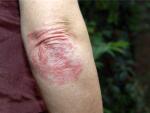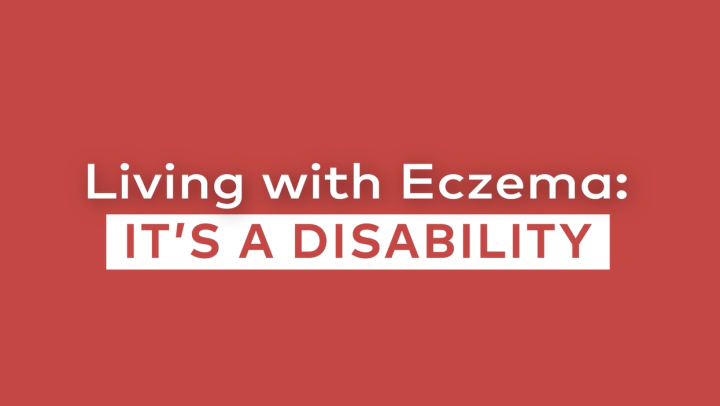This article describes possible causes of itching all over and when to contact a doctor. It also explains how to relieve itching all over the body.
Itching explained

Itching is a sensation
Pruritogens include histamine, serotonin, mechanical factors (such as dry skin), and
Sometimes itchiness is due to a problem with the skin itself. But unexplained itching all over that does not go away may indicate a condition within your body not related to your skin.
Dry skin
Dry air or dry climates can cause dry skin, a common cause of itching all over. Medical conditions can cause dry, itchy skin, so contact a skin care professional for persistently dry skin. Sjogren’s syndrome is an example. Skin also loses moisture with age.
You may notice flaking or scaling if itchiness is due to dry skin. There is usually no rash.
Other skin conditions
Many skin conditions can cause intense, generalized itching. These include:
Visible symptoms, including rash and changes in skin texture, may be present with these conditions.
Infections, parasites, and insects
Itching all over due to bites, infestations, or infections is usually visible as they cause rashes and other skin lesions. Causes include:
- viral infections such as chickenpox and measles
- insects and parasites that bite the skin or burrow into it, including:
- bed bugs
- body lice
- multiple mosquito bites
- scabies
- chiggers
You may have flu-like symptoms if itching all over is due to an infection. Itching worse at night may be due to bed bugs if you see welts.
Kidney disease and dialysis
Itching all over or in specific areas is a
The underlying cause is not clear. It may have to do with inflammation, an increase in the number of nerves that mediate itching, or both. A new treatment to relieve uremic pruritis is difelikefalin injection (Korsuva), a drug that interacts with kappa opioid receptors.
Liver disease
Generalized itching can occur with liver disease, but it is
- primary biliary cirrhosis
- primary sclerosing cholangitis
- bile duct obstruction from stones or cancer
- hepatitis C
- drug-induced liver injury
When itching all over is due to liver and bile duct disease, symptoms may include yellow skin and eyes from excess bilirubin in the bloodstream. There is no rash.
Cancer
Generalized itching may be due to cancer or its treatment, explains the NCI. Unexplained itching may be a sign of unrecognized cancer.
Cancers known to cause itching all over include liver and bile duct cancers and blood cancers. Skin cancer can also cause itching, but it usually involves the affected area, not all over.
Different cancer treatments can cause itching all over, including chemotherapy, radiation, and targeted drugs. Medications to treat the side effects of anticancer drugs may also cause it. These include certain pain medications and anti-nausea drugs.
Allergic reactions
Itching all over can be caused by a:
- soap or detergent allergy
- drug allergy
- food allergy
Seek immediate medical care
Anaphylaxis is a severe reaction to a trigger, such as an allergy, and is potentially life threatening.
Symptoms can come on quickly and include:
- feeling faint or lightheaded
- difficulty breathing or wheezing
- rapid heartbeat
- confusion
- anxiety
- clammy skin
- collapsing or losing consciousness
- hives
- swelling
- stomach pain, nausea, or vomiting
If you or someone around you develops these symptoms, you should:
- Check to see whether they have an epinephrine pen. If they do, read and follow the instructions to dispense the medication.
- Dial 911 (or a local emergency number).
- Lay them down. If they have vomited, lay them on their side.
- Stay with them until emergency services arrive.
It is possible for someone to need more than one injection with an epinephrine pen. If symptoms do not begin to clear after 5 minutes, give a second injection if one is available.
Other causes of itching all over
Other conditions that may cause generalized itching include:
- anxiety or stress
- diabetes
- iron deficiency anemia
- hormone changes
- overactive thyroid
- pregnancy
- alterations in the nerve pathways that mediate the itch sensation
- methamphetamine misuse and other drug misuse
Nighttime itching
Unexplained itching all over the body at night or when you typically sleep is known as nocturnal pruritus. The urge to itch may wake you from sleep or interrupt your ability to fall asleep.
Natural changes in your body, including your skin, may be at the root of itching at night, according to a 2016 review published in the
These include an increase in skin temperature, less moisture, and changes in skin barrier function. In turn, this may contribute to an increase in pruritogens, those factors that signal itch and scratch. Your circadian rhythm may also play a role in itching at night.
How to relieve itching all over the body
You can try caring for the itch at home for mild or moderate itching all over. The goal is to soothe the skin and limit scratching. Contact a doctor right away for an accurate diagnosis and treatment if itching is severe or distressful.
At-home remedies and self-care
Tips from the American Academy of Dermatology Association for dry skin itchiness may also provide some relief from itchiness from other causes:
- apply cool compresses
- avoid extremes of temperature and humidity, such as hot and humid or cold and dry
- use a humidifier to help maintain humidity, especially during sleep
- wear loose, soft, and smooth fabrics like cotton or ones that vent well (allow your skin to breathe)
- avoid scratchy or irritating fabrics
- for bathing:
- take short and lukewarm showers and baths
- soak in an oatmeal bath
- apply moisturizer with dimethicone, which traps moisture, to damp skin
- reapply moisturizer throughout the day as needed
- use mild, fragrance-free soaps and cleansers (unscented may mean the product has a chemical that masks other ingredients)
Get more tips for dry, itchy skin.
Medications for itching all over
Medications for itching all over are usually pills or liquids you take orally. Options may include:
- antihistamine and other types of allergy pills or liquids
- prescription corticosteroid and nonsteroidal medications
- immunosuppressants
- anticonvulsants
- kappa-opioid agonists, including Korsuva injections approved for nighttime itchiness from dialysis
Your treatment plan will also include ways to address the underlying condition that may cause itching.
When to see a doctor
You should contact a medical professional for itching all over that is causing you concern as well as itching that:
- is severe
- disrupts your sleep
- is causing breaks in the skin from scratching
- does not go away with self-care or over-the-counter (OTC) remedies
- occurs repeatedly
- accompanies certain other symptoms such as:
- skin discoloration
- irritability, especially in infants or people who cannot communicate well
- abdominal pain or swelling
- flu-like symptoms
- loss of appetite
- nausea or vomiting
- unexplained weight loss
- yellowing of the skin and eyes
Diagnosing the cause of itching all over
A clinician will review your symptoms, medical history, and current medications. They may be able to diagnose the cause with this information. They may order the following tests to aid in the diagnosis:
- blood chemistry tests to check your:
- liver
- kidneys
- thyroid gland
- complete blood count
- blood tests for markers of inflammation or autoantibodies
- skin biopsy, sometimes
Frequently asked questions
William C. Lloyd III, M.D., FACS, reviewed the following questions.
When should I worry about itching?
Itching is a cause for concern when it is severe, does not go away, or scratching causes breaks in the skin. It is also more worrisome when other symptoms accompany it, such as:
- swelling of the lips, tongue, or face, which are signs of a severe allergic reaction
- skin flushing or swelling
- yellowing of the skin and whites of the eyes, which indicates a liver or bile duct problem
What cancers cause itchy skin?
Liver, skin, and blood cancers are the most common cancers to cause itchy skin, according to a large cross-sectional study from 2019.
What part of the body can itch with liver problems?
The palms of your hands and soles of your feet are the most likely places to itch with liver disease. However, itching is
Summary
Itching all over is an uncomfortable sensation that causes a strong impulse to scratch. There are multiple causes ranging from dry skin, to dialysis, to liver disease.
You can treat itchy skin at home with self-care and anti-itch medications. However, you should contact a doctor for severe itching or when at-home treatment is not relieving your symptoms. You may need certain tests to diagnose the cause and find a specific treatment.





















